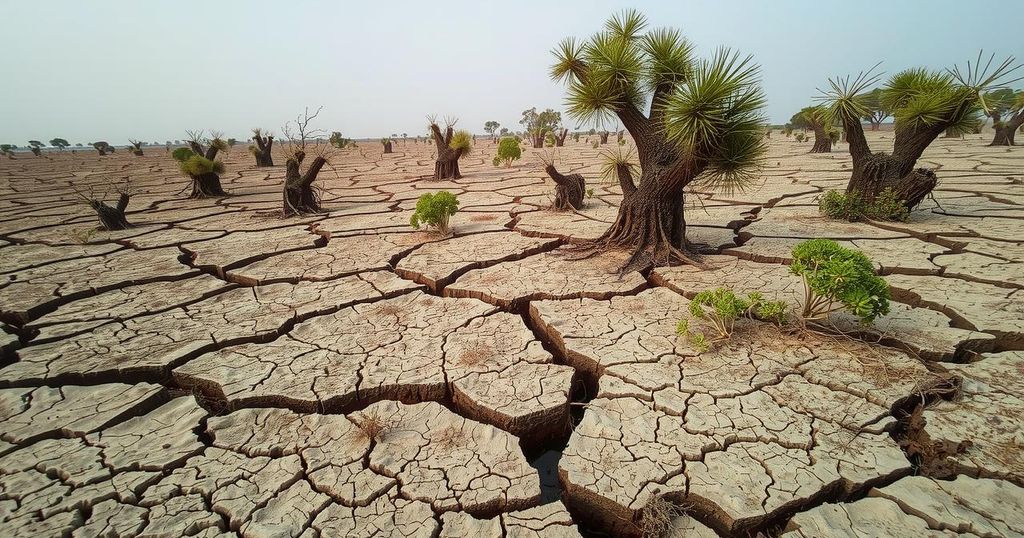Kenya Faces Its Worst Drought in 40 Years: Urgent Call for International Support
Kenya is facing its worst drought in 40 years, drastically affecting millions lacking access to water and food. The situation has escalated due to changing climate patterns, prompting calls for financial support at COP29. The newly established “Baku Climate Unity Pact” seeks to provide assistance to those most affected by climate change, including Kenya, but translating these pledges into tangible action is a significant challenge.
Kenya is grappling with its most severe drought in four decades, impacting millions who face acute shortages of water and food. This drought marks a departure from the previously predictable seasonal patterns as climate crises exacerbate living conditions in the country’s arid and semi-arid regions. Agriculture and livestock, key to the survival of many, are under threat as water sources like rivers and lakes diminish.
Recent reports by the United Nations highlight the gravity of the situation, stating that a significant portion of the Kenyan population is without reliable access to safe drinking water. In northern Kenya, women and children are compelled to travel increasing distances to fetch unsafe water, which poses health risks. During the 2024 UN Climate Change Conference (COP29) in Baku, Azerbaijan, the Kenyan delegation emphasized the urgent need for enhanced financial support from developed nations to address these pressing challenges.
The conference yielded noteworthy results, including the “Baku Climate Unity Pact,” which outlines new collective financial objectives aimed at aiding vulnerable countries. The objective is clear: to bolster the resilience of nations severely impacted by climate change, many of which are neither industrialized nor responsible for high greenhouse gas emissions. Despite robust international agreements, the challenge remains to convert commitments into actionable measures that genuinely alleviate the drought’s effects on Kenya and comparable nations experiencing similar crises.
The ongoing drought in Kenya is a culmination of altered climate patterns that have intensified over recent years. The UN has classified this situation as a water crisis, its most severe in forty years, with millions lacking consistent access to safe water. This crisis is further complicated by the reliance of rural communities on unreliable water sources and the effects of climate change on agricultural practices, placing immense pressure on food security and health outcomes for affected populations.
In conclusion, Kenya is enduring a catastrophic drought, the worst in four decades, impacting millions and intensifying the need for urgent support from the international community. The outcomes of COP29 reflect a commitment to aid vulnerable countries, yet effectively translating these pledges into concrete actions remains critical. The pressing need for sustainable solutions is paramount to address the drought’s dire consequences and help communities adapt to climate change.
Original Source: www.aljazeera.com




Post Comment